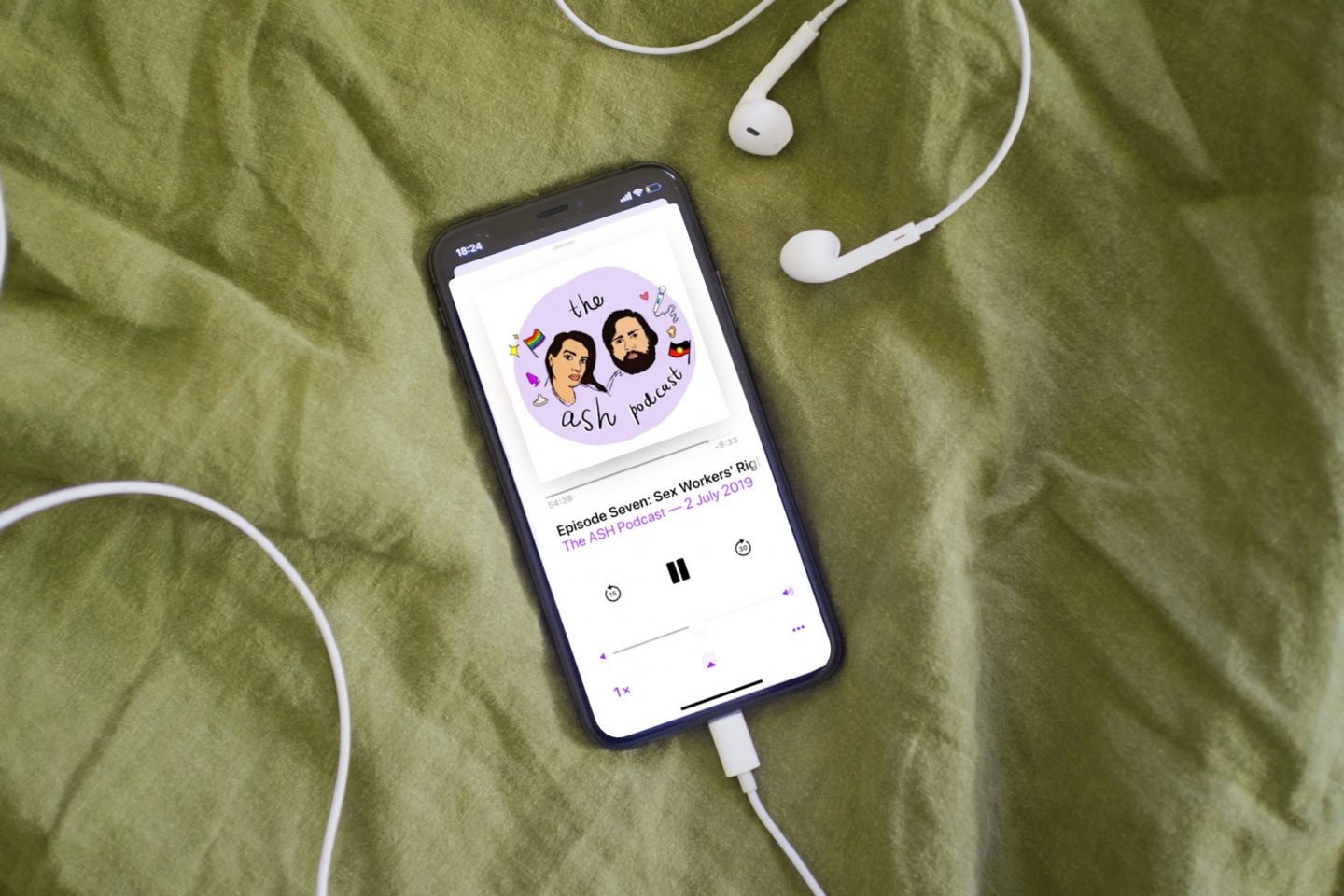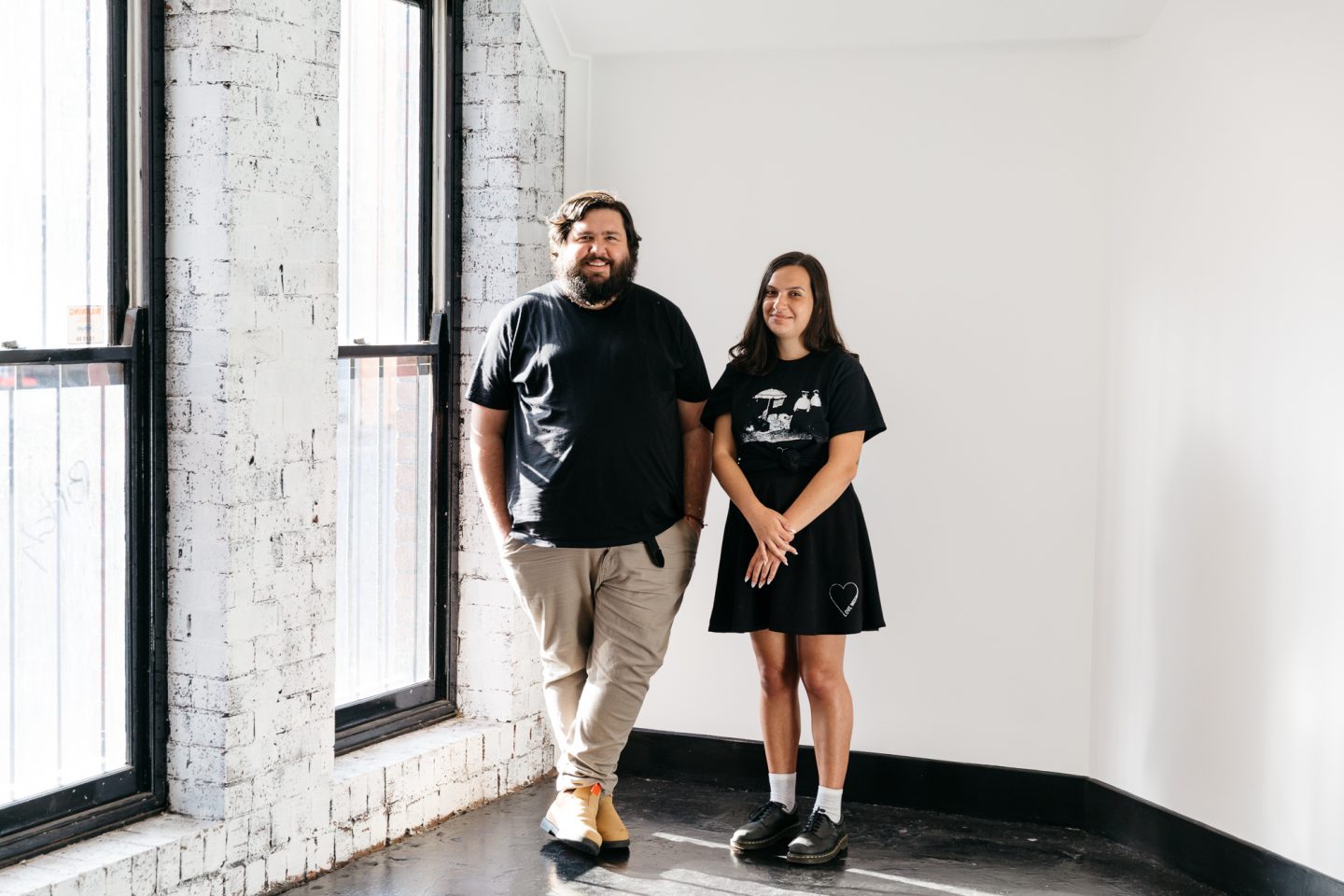“I
always wanted to create something that was for Aboriginal people, by Aboriginal people, and
didn’t have any non-Aboriginal influence over the space or what we were
saying,” Dominic Guerrera tells The Adelaide Review.
A
Ngarrindjeri, Kaurna and Italian man, Guerrera has spent years working in both
community-controlled health organisations and non-Indigenous NGOs. In 2018, he
saw podcasting as a means to further many of the conversations he had been
having, in an unmediated, Aboriginal-run space. He soon found a perfect co-host
in Sasha Smith, a Boandik woman, sex worker and writer.
“Dom
did a series of interview with people in the community, I went and had a chat
with him and we just clicked really well,” Smith says. “I’ve been a sex worker for the past
four years, which is pretty closely related to sexual health – it’s something
you have to be aware of when working.”
“Even
though Sasha comes from sex work and I come from sexual health, and there’s a
lot of crossover, they’re still two very different fields. And it’s nice that
we get to speak to each other from those fields as well as whoever joins us.”
In each
episode the pair discuss current events, their own experiences, discuss
listener questions and speak to guests including justice reform advocate Latoya
Aroha Rule and broadcaster and trans woman Charlotte Coulthard-Dare. While the
subject of Aboriginal health might call to mind medicalised issues – STI
prevention, contraception – the show’s wide-ranging conversations reflect a
more holistic view of health that encompasses different kinds of relationships,
gender, sexuality, culture and the law.

“In
Aboriginal health, you’re taught to view health holistically,” he says. “People might come into the
clinic with something wrong with them, but actually their entire lives have
brought them to that point. So why not apply that to sexual health? [Otherwise] you’re really not acknowledging the
full breadth of human sexuality, and how that impacts us on our day to day
lives.”
“I also
think it’s important to eliminate shame around those things,” Smith says. Shame
is a recurring idea on the show, with ‘No shame jobs’ becoming its catch cry. “[Shame] was something that
I had a lot of conversations about when I first started working in sexual
health,” Guerrera says. “We were talking about going into communities and navigating culture and
taboos, things that prevented Aboriginal people from talking about sexual
health.
“It
manifests in different ways, but we just call it ‘shame job’, and we really
have to address it, because it literally prevents women from getting a cervical
screening, it prevents young Aboriginal people from going and getting a simple
urine test to get their chlamydia check-up. It prevents people from coming out
and being proud of who they are and their gender identity or sexuality. If we
can eliminate shame, we can open up pathways to have conversations about sex.”
While
Guerrera stresses that some cultural protocols related to gender and sex mean
not everyone in the community will be comfortable with these conversations –
norms that should still be respected – for Guerrera and Smith the
deconstruction of the ‘shame job’ is itself an act of cultural empowerment.

“I
actually think when we eliminate shame we are actually decolonising,” he says. “And acknowledging that
we’ve replaced some of our cultural ways with very conservative Christian ways.
For some people that’s fine, but you also shouldn’t be suppressing other
Aboriginal people. [Sometimes] it’s no long the oppressor who has to tell us that
we’re not worthy – we’ve been told that we’re not worthy so much that we now
say it to each other and to ourselves.”
Instead
the pair promote an attitude of sex positivity, and their conversations work to
explain and make visible often stigmatised subjects ranging from sex work to
polyamory. But the show also offers a compelling window into the diverse lived
experiences of young Aboriginal people, which defy the easy categorisations
often favoured by non-Indigenous media.
“Just because someone’s trans doesn’t mean they have to talk about trans issues, just because they’re a sex worker doesn’t mean they have to talk about sex work,” Guerrera says. “Usually half the show is like that – in the episode we’ve just recorded I talked about the wombat incident,” he says of the recent online outrage cycle over a viral video of a Wirangu and Kokatha man killing a wombat, which saw a widely shared petition call for new restrictions to traditional hunting practices under the Native Title Act.
“How is that related to sexuality? I talked about the gendered aspects of it and how the outcomes of that petition could affect Aboriginal men,” he explains.
More Local Podcasts
Gate Close Panic
tells the stories of women winning at work
In its first year The ASH Podcast has gained traction among both local and interstate audiences, with the pair invited to present a live version of the show as part of Melbourne Writers Festival in September, and another live episode planned for November as part of Feast Festival 2019.
“It’s
something we’re able to do just by ourselves without any outside influences,” Smith
says of the podcast’s independent, DIY ethic. “Dom brings all the equipment and we
record on my bedroom floor. It’s just us two – we don’t have to rely on anyone
else.”
All of which has helped make The ASH Podcast a relaxed, uncompromised space for rich and revealing conversations. “I just think Nungas love to talk, to talk to each other and tell stories,” Guerrera says.
soundcloud.com/theashpodcast
14 November
Feast Festival:
Pride & Prejudice and ASH Podcast live
Walter is a writer and editor living on Kaurna Country.
Get the latest from The Adelaide Review in your inbox
Get the latest from The Adelaide Review in your inbox